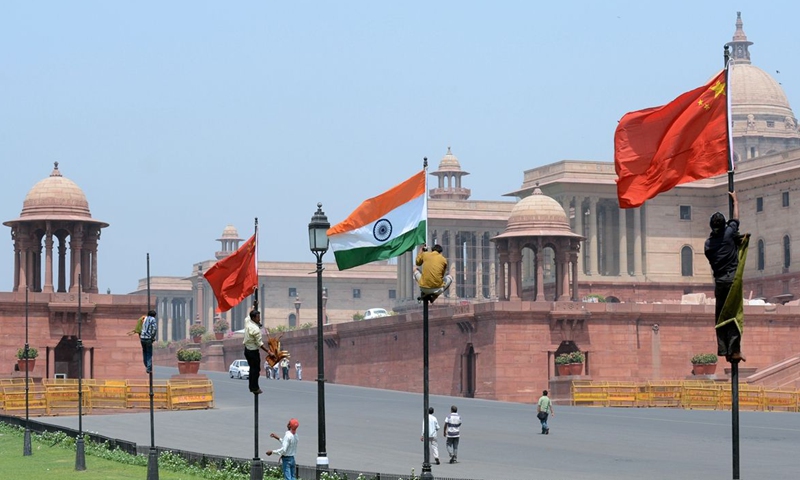Chinese embassy urges India not to politicize Confucius Institute cooperation
By GT staff reporters Source: Global Times Published: 2020/8/4 17:03:41

China India Photo:AFP
The Chinese Embassy in India on Tuesday urged the Indian side to avoid politicizing normal cooperation and maintain the healthy development of cultural exchanges between the two countries, after India vowed to review China-India high education cooperative projects including the Confucius Institutes.
All Confucius Institutes were established by the Chinese and Indian universities after signing legally binding cooperation agreements in accordance with the principles of mutual respect, friendly consultation, equality and mutual benefit, and on the premise that the Indian side applied voluntarily and met the conditions for running the institute, said the spokesperson of the Chinese Embassy in India, Counselor Ji Rong, according to a statement on the embassy's website on Tuesday.
With increasingly close economic, trade and cultural exchanges between China and India, the demand for Chinese language teaching in India is growing. China-India cooperation in the Confucius Institute Project has been carried out for more than 10 years.
Over the years, Confucius Institutes have played an important role in promoting Chinese language teaching in India and Sino-Indian people-to-people and cultural exchanges. This has been generally recognized by the Indian education community.
We hope the relevant Indian parties can treat Confucius Institutes and China-India higher education cooperation in an objective and fair manner, avoid politicizing normal cooperation, and maintain healthy and stable development of China-India people-to-people and cultural exchanges, Ji said.
Hu Zhiyong, a research fellow at the Institute of International Relations of the Shanghai Academy of Social Sciences, told the Global Times on Tuesday that the government's review is to cut China-India communication, as India has been enhancing its boycott of China in economy, education, culture and the military.
"The Indian government's move will largely damage its domestic capability in teaching Chinese and the all-around academic development of local universities," he noted.
However, Srikanth Kondapalli, a professor in Chinese Studies at Jawaharlal Nehru University in India, believes the new policy will be of "marginal impact," because it takes time to implement and India has a need for Chinese speakers.
The Hindustan Times on Sunday reported the Indian government's move to review the institutes after "intelligence agencies raised security concerns" around these institutes.
The list covers seven local colleges and universities, and 54 Memoranda of Understanding (MoUs) signed between prestigious educational institutions, including the Indian Institute of Technology and Banaras Hindu University and Chinese institutions, the Hindustan Times reported on Sunday.
Posted in: SOCIETY